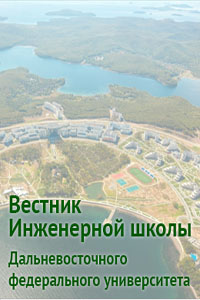Improving the efficiency of self-regenerating filters in the lubrication systems of marine medium-speed diesel engines
DOI:
https://doi.org/10.24866/2227-6858/2023-3/55-69Keywords:
medium-speed diesel, engine lubrication, engine oil, lubricating oil cleaning, self-regenerating filter, filter meshes, oil separationAbstract
It is reported on the methods of improving the cleaning and regeneration efficiency of filters used in the lubrication systems of marine diesel engines. The purpose of the research is to increase the efficiency of the working processes of self-regenerating filters in the lubrication systems of marine tronk diesel engines to ensure resource-saving oil use when they operate on low-grade fuels. The possibilities of woven filter meshes of plain weave with an optimized pore structure are shown in comparison with known filter materials. By optimizing the parameters of the pore structure of filter meshes, the most acceptable balance between throughput and regenerability of woven materials has been achieved. The interlacing geometry is determined, in which the role of the external filter area increases with the accumulation of easily washed deposits on the surface of the grids. Based on the simulation results, the influence of the hydrodynamic intensity of the washing flow, the adhesive activity of deposits and the dispersed composition of con-taminants on the regeneration coefficient was identified. The effectiveness of reducing the "mud" load of the filter and increasing the autonomy of its operation by centrifugal separation of engine oil with a throughput adjusted depending on the dispersion of the pollutant is shown. The results of field tests of the developed automated oil cleaning systems in marine diesel engines 6CHN40/46 and 8DN32/65 are presented. The efficiency of new automated systems for fine cleaning of engine oil was compared in terms of their effect on the aging of the lubricant product, wear and carbon formation indicators of medium-speed diesel engines.
Downloads
Published
Issue
Section
License
Copyright (c) 2023 Far Eastern Federal Univercity: School of Engineering Bulletin

This work is licensed under a Creative Commons Attribution 4.0 International License.

